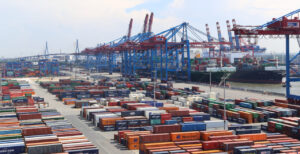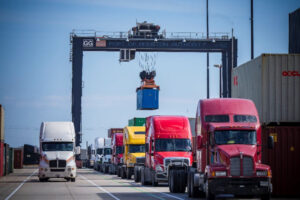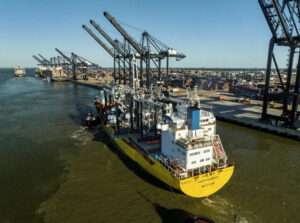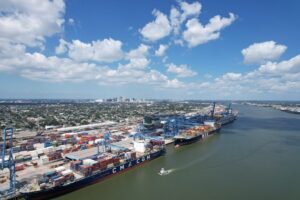Globalisation did not pass the stress test presented by COVID-19 according to one commentator speaking during the World Economic Forum’s briefing on its Global Risks Report for 2021.
Referring to the global trade outlook, Guillaume Barthe-Dejean, Director, Chairman’s Office, SK Holdings, suggested that there would not be a return to the hyper-globalised trade system of pre-pandemic times.
Instead, trends towards nationalism and isolationism were accelerated by COVID-19 and it was clear that the response to the pandemic was not a global one.
Going forward Barthe-Dejean said there will be a “rethink of global trade” with a regionally-based world economy that better balances between national and international interest likely to develop.
He said that economic regionalism may emerge as a political and economic halfway house.
However, Saadia Zahidi, Managing Director, World Economic Forum, pointed out that free trade and open borders are important, particularly for developing economies.
Despite many nations becoming increasingly inward-looking and nationalistic Børge Brende, President, World Economic Forum, noted that all risks are global and interconnected, as proven by COVID-19 which did not respect borders. Similarly, he noted, climate change knows no borders and will remain a challenge.
Barthe-Dejean also warned that we could be “sleepwalking” into a sovereign debt crisis as global debt levels continue to rise. As part of the Global Risks Horizon a debt crisis is seen as a medium-term risk that could play out in the next three to five years.
Carolina Klint, Risk Management Leader, Continental Europe, Marsh, noted that COVID-19 and the economic crisis of 2008 show that high impact, low likelihood risks cannot be treated as unlikely events.
Climate matters
Overall, climate-related matters continue to dominate the 2021 Global Risks Report published by the World Economic Forum.
The report describes climate-related risks as “an existential threat to humanity.” Climate change was also at the top of the 2020 report.
Unsurprisingly the biggest changes from 2020 to 2021 are consequences of the COVID-19 coronavirus pandemic. The risk posed by infectious diseases is now ranked at number one, while in 2020 it came in 10th place.
These are the world’s greatest threats in 2021 @MarshGlobal @Zurich https://t.co/FD1l9wq9Nl #DavosAgenda #risks21 pic.twitter.com/Bw34Ih8swb
— World Economic Forum (@wef) January 19, 2021
It is not the first time the Risks Report has explored global health risks as it was highlighted in the first report in 2006.
“The 2006 report looked at the possibility of a lethal flu spreading because of global travel,” said Zahidi.
“In 2020 we talked about how health systems were faced with threats from multiple fronts and were too weak to deal with a large load,” she said.
Digital Divide
“We need to make sure that the growth to come is more inclusive, creates decent jobs and is more sustainable,” said Brende. “If we do not address the underlying fragmentation it will create issues going forward.”
In particular he highlighted the digital divide which has been accelerated by the COVID-19 pandemic and the move for many to work from home and rely on internet connections.
“We have to invest in global inequalities not growing,” he said, noting that this includes access to the internet and education.
Zahidi highlighted that half of the globe still does not have full access to the internet.
Peter Giger, Group Chief Risk Officer, Zurich Insurance Group, claimed that COVID-19 has accelerated the fourth industrial revolution and decisions are increasingly being made by algorithms rather than humans.
There is now a widening digital literacy gap which risks creating a digital divide. Public policy to counter digital skill gaps is limited.
Rapid digitalisation has also resulted in increased exposure to cyber threats with cyber security one of the top short-term risks outlined by the report. The advice is that businesses should take time to assess the changes brought about by COVID-19 in this digital era.
The 2021 risks report draws upon data and insights from a wide array of respondents via the World Economic Forum’s Global Risks Perception Survey. The survey was completed by over 650 members of the Forum’s diverse leadership communities.









